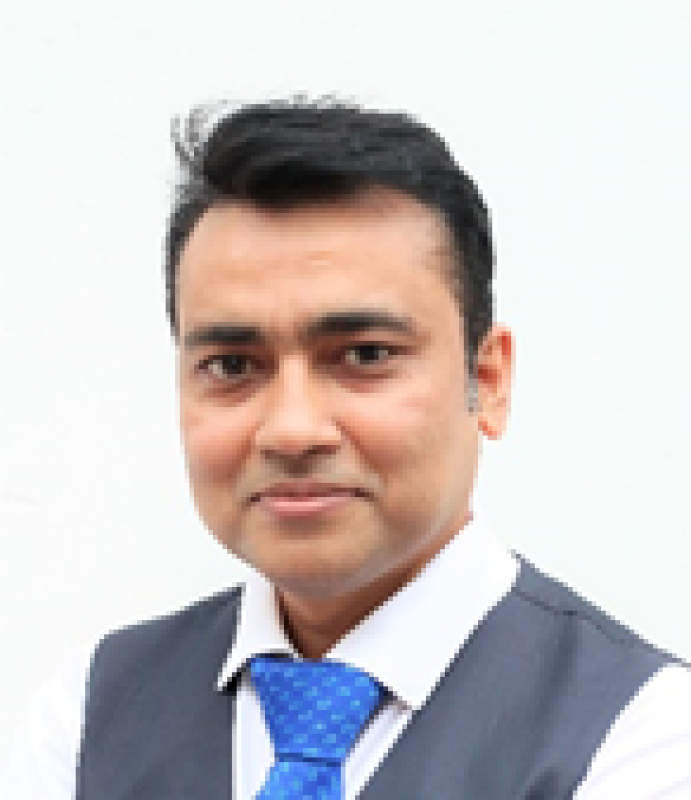- Christmas in Bangladesh Thursday |
- Bangladesh Bars Internet Shutdowns, Restores BTRC Autonomy |
- Tarique Rahman Leaves London for Bangladesh After 17 Years |
- Govt welcomes Tarique Rahman’s return, assures full coop |
- BNP strikes polls deal with 7 more partners, reserves 8 seats |
Optometrist - A Vanguard in Global Myopia Control
World Optometry Day Slogan

Dr. Mohd Mizanur Rahman
Every year on March 23rd, World Optometry Day serves as a reminder of the crucial role optometrists play in safeguarding our vision. This year, the theme resonates deeply as the world grapples with an unprecedented surge in myopia cases, especially among children. With the slogan "Optometrist: A Vanguard in Global Myopia Control," the day emphasizes the pivotal role of optometrists in addressing this growing concern.
In a world where vision is invaluable, the role of optometrists stands as a beacon of hope against the rising tide of myopia. As we celebrate World Optometry Day, it's crucial to recognize the pivotal role these professionals play in the global eye Globally, myopia is the leading cause of distance refractive error, affecting 1.45 billion or 27% of the world's population in 2010 (myopia being defined as more than or equal to 0.50 D of myopia), Health, particularly in combating the escalating prevalence of myopia worldwide. A study conducted in Bangladesh found that myopia prevalence was 22.1% and hypermetropia was 20.6%.
Myopia, or nearsightedness, is reaching alarming levels worldwide, with projections suggesting that by 2050, nearly half of the world's population will be myopic. Myopia, or nearsightedness, has reached epidemic proportions, affecting millions across the globe. Its prevalence has surged dramatically recently, especially among children and young adults. Factors such as excessive screen time, limited outdoor activities, and genetic predisposition contribute to this alarming trend. Left unchecked, myopia can lead to severe vision impairment and increase the risk of debilitating eye conditions like glaucoma and retinal detachment.
Enter the optometrist – the frontline guardians of ocular health. With expertise in diagnosing refractive errors and prescribing corrective measures, optometrists play a pivotal role in myopia control and management. Through comprehensive eye examinations, they detect myopia early, enabling timely interventions to mitigate its progression. Moreover, optometrists educate patients and parents about preventive measures, advocating for lifestyle modifications and promoting outdoor activities. tailored treatment options such as corrective lenses, orthokeratology, and pharmaceutical interventions, aiming to slow down myopia progression effectively to reduce the risk of myopia development.
Consider the case of Miss Fatima, a 10-year-old girl diagnosed with myopia during a routine eye check-up. Thanks to her optometrist's proactive approach, Fatima's myopia progression was closely monitored, and he was prescribed specialized lenses designed to slow its advancement. With regular follow-ups and personalized care, Fatima's vision stabilized, sparing her from the potentially severe consequences of unmanaged myopia.
Dr. Mohd Mizanur Rahman, Vision Sciencetist a seasoned optometrist, underscores the significance of early intervention. "Identifying myopia in its nascent stages allows us to implement effective interventions to slow its progression," he explains. "Regular eye check-ups are imperative, especially for children, as timely interventions can significantly reduce the risk of severe myopia and associated complications."
Yet, the battle against myopia extends beyond individual interventions. It demands a concerted effort on a global scale, encompassing public awareness campaigns, policy advocacy, and interdisciplinary collaborations. Optometrists, as champions of ocular health, are at the forefront of this endeavor, advocating for initiatives that promote eye-friendly environments in schools, workplaces, and communities.
Remedies to combat myopia require a multifaceted approach. Education campaigns targeting parents, educators, and healthcare professionals are vital to raising awareness about the importance of early detection and intervention. Implementing guidelines for screen time regulation and promoting outdoor activities can help mitigate the risk factors contributing to myopia progression. Additionally, integrating myopia control strategies into primary eye care services ensures that individuals receive timely and comprehensive treatment.
Optometrists play a multifaceted role in addressing myopia, ranging from early detection and diagnosis to implementing preventive measures and managing its progression. Through comprehensive eye examinations, optometrists can identify myopia at its onset, enabling timely intervention to mitigate its advancement. Moreover, they provide tailored treatment options such as corrective lenses, orthokeratology, and pharmaceutical interventions, aiming to slow down myopia progression effectively.
Beyond clinical practice, optometrists serve as educators and advocates within their communities, raising awareness about myopia and its associated risks. By promoting healthy visual habits, encouraging outdoor activities, and emphasizing the importance of regular eye exams, optometrists empower individuals and families to take proactive steps in myopia prevention. Additionally, they collaborate with schools, healthcare organizations, and policymakers to implement public health initiatives aimed at tackling myopia on a broader scale.
Innovations in optometric technology and ongoing research play a pivotal role in advancing myopia control strategies. From sophisticated diagnostic tools to cutting-edge treatment modalities, optometrists leverage technological advancements to enhance patient care and optimize treatment outcomes. Furthermore, active engagement in research endeavors enables optometrists to contribute to the collective understanding of myopia etiology and develop novel interventions for better management.
Investing in the education and training of future optometrists is crucial for sustaining efforts in global myopia control. By equipping optometry students with comprehensive knowledge, practical skills, and a deep understanding of myopia management, educational institutions play a pivotal role in shaping the next generation of optometric leaders. Encouraging research initiatives and fostering collaboration across disciplines further strengthens the collective resolve to combat myopia on a global scale.
On this World Optometry Day, let us salute the optometrists worldwide who tirelessly strive to safeguard vision and combat myopia. Their dedication, expertise, and advocacy are indispensable in building a future where ocular health knows no bounds. As the slogan resonates – "Optometrist: A Vanguard in Global Myopia Control" – let us unite in our efforts to envision a world where every individual enjoys the gift of clear vision, free from the shadows of myopia.

